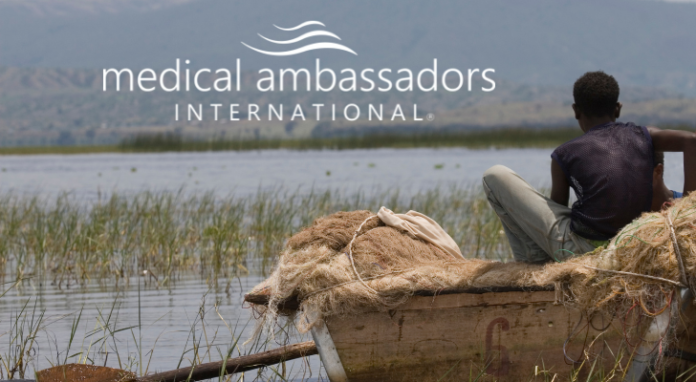In Partnership With Medical Ambassadors International
“Give a man a fish, and you feed him for a day. Teach a man to fish, and you feed him for a lifetime.”
While it is nice to receive “a fish,” true empowerment begins in the learning process.
Medical Ambassadors International (MAI) recognized the need of educational empowerment in the 1980’s while serving in communities with little to no healthcare in East Asia and South America. Once a mobile clinic was set up, many people would come to receive care. Doctors provided the required treatment, and then they would leave the area to set up the next mobile clinic. The problem was that when the doctors returned to a community where they had previously been, they found the same people sick from the same problems. It was then recognized that while the people received help for their current illness, they went back and drank the same water that made them sick in the first place.
It became apparent that a different strategy was needed – one that would truly make a definitive difference in the world’s health care.
Without a change to medical missions, no matter how many clinics were organized, the result would still be the same as people came back over and over, year after year, with the same health issues as they had previously suffered. Eventually, it was decided that it would be far more productive, cost effective and beneficial to focus on prevention of illness and disease rather than waiting until after the people were sick – and perhaps dying.
That search for a better way led to the discovery and development of Community Health Evangelism/Education (CHE). CHE incorporates physical and spiritual education with a special focus on prevention of disease, not treatment after the fact. The lessons that focus on disease prevention draw largely from materials from the World Health Organization (WHO) and Centers for Disease Control (CDC), putting them into language that anyone can understand, and anyone can teach – even if they have had no medical training whatsoever! At the same time, they include spiritual truth to evangelize and share the gospel. Currently, there are over 10,000 CHE lessons on agriculture, nutrition, literacy, family relationships, micro-enterprise, coping with disability, human trafficking prevention, women’s cycle of life and much more!
Results have been staggering.
In CHE communities, health improves, infant mortality decreases (as much as 50%), agriculture becomes more productive, and jobs are created. Water systems, roads, schools, and clinics are built, and churches are planted. People have recovered their identity as made in the image of God and their vocation as stewards of creation. Instead of being controlled or victimized by their environment, they are stewards of it. People are equipped to identify needs and resources, put together a plan, and mobilize volunteers to accomplish their vision. People are continually reflecting on what is happening in order to learn how to be more effective. Believers are meeting together for fellowship, prayer, Bible study and worship, and are sharing Christ with their neighbors in word and deed.
In her book, “Outside the Margins: Lessons from Walking with Communities of the World,” Sharon Bieber provides a beautiful example of empowerment through CHE that brought change to the whole community.
Shia* is a Southeast Asian CHE colleague who looks for better solutions. She has seen the devastation of tsunamis and earthquakes, living among people who have suffered through more than one disaster. While many of us do our small part and leave, she stays and helps them find their assets. What remaining resources are there after the disaster, she asks, and what is needed to restore healthy homes?
Shia masterfully takes the community members from being victims of the disaster to producing their own building materials for their homes, making their own concrete pillars, sun dried bricks and bamboo. Builders gain skill and experience by helping themselves and their neighbors re-build homes, and then launch their own construction business. Now they have moved from victims to entrepreneurs as they learn to market their skills to other communities and run their own businesses. Even school children in one place got involved in helping to build their own schools.
Learn how MAI is responding to the recent volcano eruption in DR Congo.
An important component of CHE is to involve the community itself in determining needed interventions. Before education begins, community leaders are consulted about the greatest needs. Understanding the needs of the community allows the education to be relevant and engages the people at a different level than providing what we consider the needs to be.


